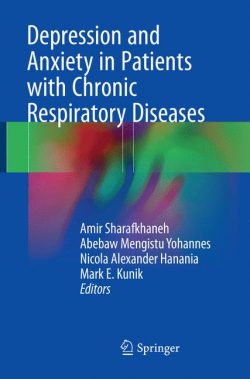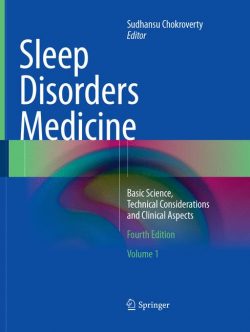This book explores the 1907 Korean Revival Movement from a self psychological perspective. The examination of the psychological processes in the movement based on Heinz Kohut’s self psychology can shed light on religious experiences as selfobject experiences by identifying the sense of defeatedness and helplessness that Korean people experienced under Japanese occupation as what Kohut calls self-fragmentation of the Korean group self and explaining its therapeutic functions which facilitate potential for the narcissistic nourishment of the fragmented group self leading to renewed self-esteem, transformation, and empowerment of the Korean people. Korean people in the early 1900s experienced abuses and oppression by corrupt officials and exploitation by Japanese government. Through religious experiences which emphasized the individual repentance, the experience of God through the spirit, emphasis on prayer, and eschatological faith, the Korean Revival Movement in 1907 enabled its followers to experience mirroring and idealizing selfobjects which function as a role of transforming the lower shape of narcissism into the higher one.
Chapter One: Psychological Analysis of the 1907 Revival Movement
Contexts for the Study
The Method and Underlying Theory of the Study
Resources for the Study
Contributions to the Study of the 1907 Revival Movement
Outline of Chapters
Chapter Two: Kohut’s Self Psychology: Selfobject and Selfobject Experiences
A Psychoanalytic Theory of the Development of the Self
Structure of the Self
The Selfobject
Three Types of Selfobject Experience
1. The Selfobject Experience of Mirroring
2. The Selfobject Experience of Idealizing
3. The Selfobject Experience of Twinship
Faulty Self Developments.
The Therapeutic Process
The Group Self
Kohut’s Understanding on Religion
Chapter Three: The Korean Group Self and the Joseon Dynasty.
Selfobject Functions of the Political, Social, and Religious Systems of the Joseon Dynasty
The Emergence of the Fragmented Korean Group Self.
Expression of the Enfeebled Korean Group Self in the Society and Art
A Constant Search for Substitute Selfobjects
Chapter Four: The Selfobject Functions of the 1907 Revival Movement.
The Progress of the 1907 Revival Movement.
The Mirroring Selfobject Experience
The Idealizing Selfobject Experience
The Twinship Selfobject Experience
Conclusion
Chapter Five: Korean Christianity and the Korean Groups Self
The Korean Protestant Church and its Recent Critical Situation
Faulty Empathy of the Korean Protestant Church
1. Fragmentation of the Korean Group Self in the Modern and Contemporary Korean History
2. Religious Materialism and Failure of Selfobject Functions.
The Restoration of the Korean Protestant Church’s Selfobject Functions
1. Increasing Social Participation of the Church
2. A Well-proportioned Theological View between Self-surrender and Self-acceptance
3. Development of Leadership that is Appropriate to the Contemporary Period
Chapter Six: Conclusion: Sublimation, Oceanic Feeling, and the Selfobject
Sublimation
The “Oceanic Feeling” and Mystical Practices.
The Selfobject and Religion
The Selfobject and Korean Christianity
Jung Eun Jang is Assistant Professor at Ewha Womans University, South Korea, who is teaching pastoral care and counseling in the department of Christian Studies. He is an ordained pastor of the Korean Presbyterian Church, as well as a Nationally Certified Psychoanalyst(NCPsyA), certified by NAAP (National Association for the Advancement of Psychoanalysis). This book explores the 1907 Korean Revival Movement from a self psychological perspective. The examination of the psychological processes in the movement based on Heinz Kohut’s self psychology can shed light on religious experiences as selfobject experiences by identifying the sense of defeatedness and helplessness that Korean people experienced under Japanese occupation as what Kohut calls self-fragmentation of the Korean group self and explaining its therapeutic functions which facilitate potential for the narcissistic nourishment of the fragmented group self leading to renewed self-esteem, transformation, and empowerment of the Korean people. Korean people in the early 1900s experienced abuses and oppression by corrupt officials and exploitation by Japanese government. Through religious experiences which emphasized the individual repentance, the experience of God through the spirit, emphasis on prayer, and eschatological faith, the Korean Revival Movement in 1907 enabled its followers to experience mirroring and idealizing selfobjects which function as a role of transforming the lower shape of narcissism into the higher one.
Carefully examines human religious conduct in the 1907 Korean Revival Movement by accounting for the emotional origin and psychological motivation
Explains how religious experiences and theological idea of the Movement fortified the psychological health of the Korean people
Examines the emotional origin of the religious behavior and experiences with the context of a historical event
“Since a German historian, psychologist, and hermeneutic philosopher, Wilhelm Ditlhey defined Geistwissenshaften as a science of interpretation, embracing philosophy, history and such human/social science as psychology and sociology, most of its subject matters had taken their own course for so long. Dr. Jang’s provocative work will show us how a dialogical project of psychohistory would still work well for many human/social scientists of interpretation in the twenty-first century.” (Soo-Young Kwon, Professor of Pastoral Theology, Yonsei University, Korea, and President of Korean Association of Christian Counseling & Psychology)
“Dr. Jang’s self-psychological analysis of the 1907 Revival Movement makes significant contributions globally to the field of religious experience and locally to the understanding and implications of the Revival Movement in Korea. His meticulous examination of historical contexts–social, economic, and political—that are behind the movement and his efficacious application of self-psychology in his analysis underscore the positive function of religious experiences for psychological well-being. His work also offers a more holistic understanding of the Movement and provides valuable implications for the current church context in South Korea.” (Angella Son, Associate Professor of Psychology and Religion, Drew University, USA, and author of “Spirituality of Joy: Moving Away from Dread and Duties”)
“Jung Eun Jang’s book gives a holistic perspective on the 1907 Korean Revival Movement. Its psychohistorical insight on the existing theological and spiritual understandings of the Movement fills a gap in scholarship both on the Movement and on the development of Korean Protestant Christianity. This book is essential reading for church leaders and theologians wrestling with the Korean church’s current stagnation.” (Insook Lee, Associate Professor of Pastoral Theology, Care, and Counseling, New York Theological Seminary, USA)




